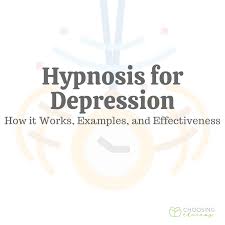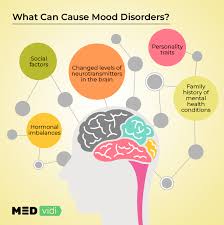Therapeutic hypnosis, also known as hypnotherapy, is a powerful tool that can help individuals overcome a wide range of emotional and behavioral issues. Despite its effectiveness, many people are still skeptical about the practice and have misconceptions about what it entails.
First and foremost, it’s important to understand that hypnotherapy is not mind control. During a hypnotherapy session, the individual is fully aware of their surroundings and remains in complete control of their thoughts and actions. The therapist simply guides the individual into a state of deep relaxation where they are more open to suggestion.
Hypnotherapy can be used to treat a variety of issues such as anxiety, depression, phobias, addiction, and even chronic pain. It works by accessing the subconscious mind where deep-seated beliefs and behavioral patterns are stored. By identifying and changing these beliefs, individuals can experience profound shifts in their thoughts and behaviors.
One common misconception about hypnosis is that it is only effective for certain types of people or personalities. In reality, anyone can benefit from hypnotherapy regardless of their background or personality type. The key to success lies in the individual’s willingness to participate in the process and their ability to relax and trust the therapist.
Another misconception is that hypnosis involves being put into a trance-like state where one loses all sense of control. This couldn’t be further from the truth. Hypnosis is simply a state of deep relaxation where individuals are more receptive to suggestion. They remain in complete control throughout the entire process.
It’s also important to note that hypnotherapy should always be conducted by a trained professional who has undergone proper certification and training. While there are many self-proclaimed “hypnotists” out there who claim to offer therapeutic services, it’s important to do your research before entrusting your mental health to someone.
In conclusion, therapeutic hypnosis is a powerful tool that can help individuals overcome a wide range of emotional and behavioral issues. Despite its effectiveness, there are still many misconceptions about the practice. By understanding what hypnotherapy entails and working with a trained professional, individuals can experience profound shifts in their thoughts and behaviors, leading to a happier and more fulfilling life.
Answers to 8 Common Questions About Therapeutic Hypnosis
- What is therapeutic hypnosis?
- How does therapeutic hypnosis work?
- What are the benefits of therapeutic hypnosis?
- Is therapeutic hypnosis safe?
- How long does a session of therapeutic hypnosis last?
- Who can benefit from therapeutic hypnosis?
- Are there any risks associated with therapeutic hypnosis?
- What should I expect during a session of therapeutic hypnosis?
What is therapeutic hypnosis?
Therapeutic hypnosis, also known as hypnotherapy, is a form of therapy that uses hypnosis to help individuals overcome a variety of emotional and behavioral issues. Hypnosis is a state of deep relaxation where the individual is more open to suggestion and their subconscious mind can be accessed. During a hypnotherapy session, the therapist guides the individual into this state of deep relaxation and then uses suggestion and visualization techniques to help them address underlying issues such as anxiety, depression, phobias, addiction, and even chronic pain. By identifying and changing negative beliefs and behavioral patterns stored in the subconscious mind, individuals can experience profound shifts in their thoughts and behaviors. It’s important to note that therapeutic hypnosis should always be conducted by a trained professional who has undergone proper certification and training.
How does therapeutic hypnosis work?
Therapeutic hypnosis, also known as hypnotherapy, works by accessing the subconscious mind where deep-seated beliefs and behavioral patterns are stored. During a hypnotherapy session, the individual is guided into a state of deep relaxation where they become more open to suggestion.
Once the individual is in a relaxed state, the hypnotherapist will use various techniques to help them access their subconscious mind. This may include visualization exercises or guided imagery to help the individual focus on specific thoughts or emotions.
The therapist may also use suggestion therapy to help the individual change their thoughts or behaviors. This involves making positive suggestions to the individual while they are in a hypnotic state. For example, if an individual is struggling with anxiety, the therapist may suggest that they feel calm and relaxed in stressful situations.
It’s important to note that hypnotherapy is not mind control. The individual remains in complete control of their thoughts and actions throughout the entire process. They can choose whether or not to accept suggestions made by the therapist.
Hypnotherapy can be used to treat a wide range of emotional and behavioral issues such as anxiety, depression, phobias, addiction, and even chronic pain. By identifying and changing deep-seated beliefs and behavioral patterns, individuals can experience profound shifts in their thoughts and behaviors.
In conclusion, therapeutic hypnosis works by accessing the subconscious mind where deep-seated beliefs and behavioral patterns are stored. By guiding individuals into a state of deep relaxation and using various techniques such as suggestion therapy, hypnotherapists can help individuals overcome a wide range of emotional and behavioral issues.
What are the benefits of therapeutic hypnosis?
Therapeutic hypnosis, also known as hypnotherapy, has been shown to offer a wide range of benefits for individuals struggling with emotional and behavioral issues. Here are some of the key benefits of therapeutic hypnosis:
- Reduced Anxiety and Stress: Hypnotherapy can help individuals achieve a state of deep relaxation, which can help reduce anxiety and stress levels. This can lead to improved mental health and overall well-being.
- Improved Sleep: Hypnotherapy can be used to address sleep disorders such as insomnia by helping individuals relax and fall asleep more easily.
- Overcoming Phobias: Hypnotherapy can be effective in treating phobias such as fear of flying, heights, or spiders by helping individuals reframe their thoughts and overcome their fears.
- Addiction Treatment: Hypnotherapy can be used to treat addiction by helping individuals identify and change the underlying beliefs and behaviors that contribute to their addictive behaviors.
- Pain Management: Hypnotherapy has been shown to be effective in managing chronic pain by helping individuals relax and shift their focus away from the pain.
- Improved Self-Esteem: Hypnotherapy can help individuals identify and change negative thought patterns that contribute to low self-esteem, leading to improved confidence and self-worth.
- Better Coping Skills: Hypnotherapy can teach individuals new coping skills for dealing with stressors in their lives, leading to improved mental health and resilience.
Overall, therapeutic hypnosis offers a safe, non-invasive way for individuals to address a wide range of emotional and behavioral issues. By working with a trained professional, individuals can experience profound shifts in their thoughts and behaviors, leading to improved mental health and overall well-being.
Is therapeutic hypnosis safe?
Yes, therapeutic hypnosis is generally considered safe when conducted by a trained and certified professional. However, as with any form of therapy, there may be some risks and potential side effects.
One of the most common side effects of hypnotherapy is a temporary increase in anxiety or emotional distress. This can occur when the individual accesses deep-seated emotions or experiences during the session. However, this is typically short-lived and can be addressed by the therapist.
In rare cases, individuals may experience false memories or distorted perceptions as a result of hypnotherapy. This can occur when suggestions made during the session are misinterpreted or taken out of context. However, this is also rare and can be avoided by working with a trained professional who follows ethical guidelines.
It’s important to note that hypnotherapy should not be used as a substitute for medical treatment or therapy for serious mental health conditions such as schizophrenia or bipolar disorder. It should always be used in conjunction with other forms of treatment and under the guidance of a healthcare professional.
Overall, therapeutic hypnosis is considered safe when conducted by a trained professional who follows ethical guidelines and takes appropriate precautions to ensure the safety and well-being of their clients. As with any form of therapy, it’s important to do your research and work with someone you trust to ensure the best possible outcome.
How long does a session of therapeutic hypnosis last?
The length of a session of therapeutic hypnosis can vary depending on the therapist and the individual’s needs. Generally, a single session can last anywhere from 45 minutes to 90 minutes. However, some therapists may offer longer or shorter sessions depending on the individual’s needs and preferences.
It’s important to note that hypnotherapy is not a one-time solution and often requires multiple sessions to achieve lasting results. The number of sessions needed will depend on the individual’s specific goals and the complexity of their issues.
During a hypnotherapy session, the therapist will guide the individual into a state of deep relaxation where they are more open to suggestion. They will then work with the individual to identify and change deep-seated beliefs and behavioral patterns that may be contributing to their issues.
Overall, while the length of a hypnotherapy session may vary, it’s important for individuals to commit to multiple sessions in order to achieve lasting results. By working with a trained professional and remaining open to the process, individuals can experience profound shifts in their thoughts and behaviors, leading to a happier and more fulfilling life.
Who can benefit from therapeutic hypnosis?
Anyone can benefit from therapeutic hypnosis, regardless of their age, gender, or background. Hypnotherapy can be used to treat a wide range of emotional and behavioral issues such as anxiety, depression, phobias, addiction, and even chronic pain. It can also be used for personal growth and self-improvement.
Hypnotherapy works by accessing the subconscious mind where deep-seated beliefs and behavioral patterns are stored. By identifying and changing these beliefs, individuals can experience profound shifts in their thoughts and behaviors.
People who have tried traditional therapy but have not experienced the desired results may find hypnotherapy to be a helpful alternative. Hypnotherapy can often provide faster results than traditional therapy because it targets the subconscious mind where change occurs at a deeper level.
Individuals who are open to the process and willing to participate in their own healing can benefit greatly from hypnotherapy. It’s important to note that hypnosis should always be conducted by a trained professional who has undergone proper certification and training.
Overall, anyone who is seeking personal growth or struggling with emotional or behavioral issues can benefit from therapeutic hypnosis. It’s a safe and effective tool that has helped countless individuals achieve positive changes in their lives.
Are there any risks associated with therapeutic hypnosis?
When performed by a trained and licensed professional, therapeutic hypnosis is generally considered safe. However, as with any type of therapy, there are some potential risks and side effects to consider.
One potential risk is the possibility of creating false memories. In some cases, individuals undergoing hypnotherapy may recall events or experiences that did not actually occur. This is more likely to happen if the therapist uses leading questions or suggestive language during the session. It’s important for the therapist to remain neutral and avoid making suggestions that could influence the individual’s memories.
Another risk is the possibility of emotional distress. Hypnotherapy can bring up intense emotions and memories that may be difficult to process. A skilled therapist will help individuals navigate these emotions in a safe and supportive environment.
In rare cases, hypnotherapy can also lead to physical side effects such as headaches, dizziness, or nausea. These side effects are usually mild and temporary.
It’s important for individuals considering hypnotherapy to discuss any concerns or questions they may have with their therapist beforehand. They should also make sure they choose a licensed professional who has undergone proper training and certification in hypnotherapy.
Overall, while there are some potential risks associated with therapeutic hypnosis, when performed by a qualified professional it is generally considered safe and effective for treating a wide range of emotional and behavioral issues.
What should I expect during a session of therapeutic hypnosis?
During a session of therapeutic hypnosis, you can expect to be guided into a state of deep relaxation by a trained hypnotherapist. The therapist may use various techniques such as guided imagery, progressive muscle relaxation, or breathing exercises to help you relax and enter into a trance-like state.
Once you are in this relaxed state, the therapist will begin to make suggestions to your subconscious mind that are designed to help you overcome your specific issue. These suggestions may be focused on changing negative beliefs or behaviors that are holding you back or helping you develop new positive habits.
It’s important to note that during the session, you will remain in complete control of your thoughts and actions. You will not be forced to do anything against your will and can come out of the trance-like state at any time if you feel uncomfortable.
The length and number of sessions required for therapeutic hypnosis will depend on the individual and their specific issue. Some people may experience significant improvement after just one session, while others may require multiple sessions over several weeks or months.
Overall, therapeutic hypnosis is a safe and effective tool for overcoming a wide range of emotional and behavioral issues. By working with a trained hypnotherapist and being open to the process, individuals can experience profound shifts in their thoughts and behaviors leading to a happier and more fulfilling life.




